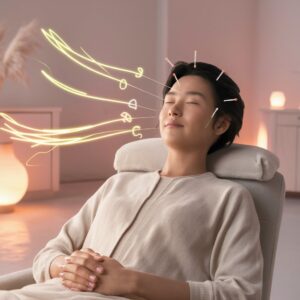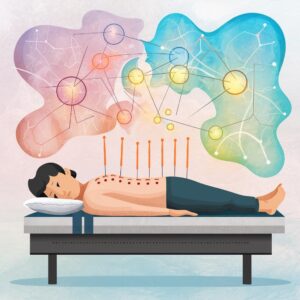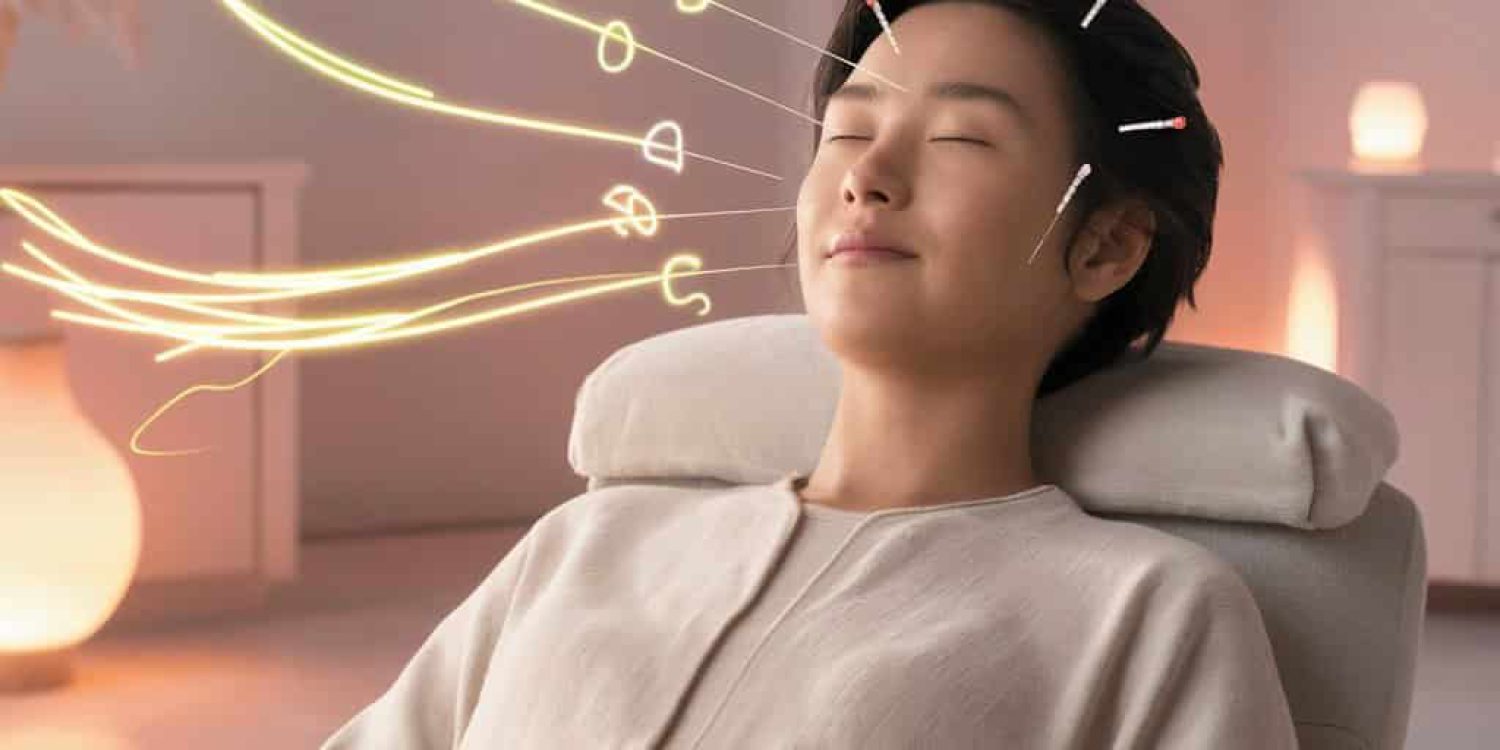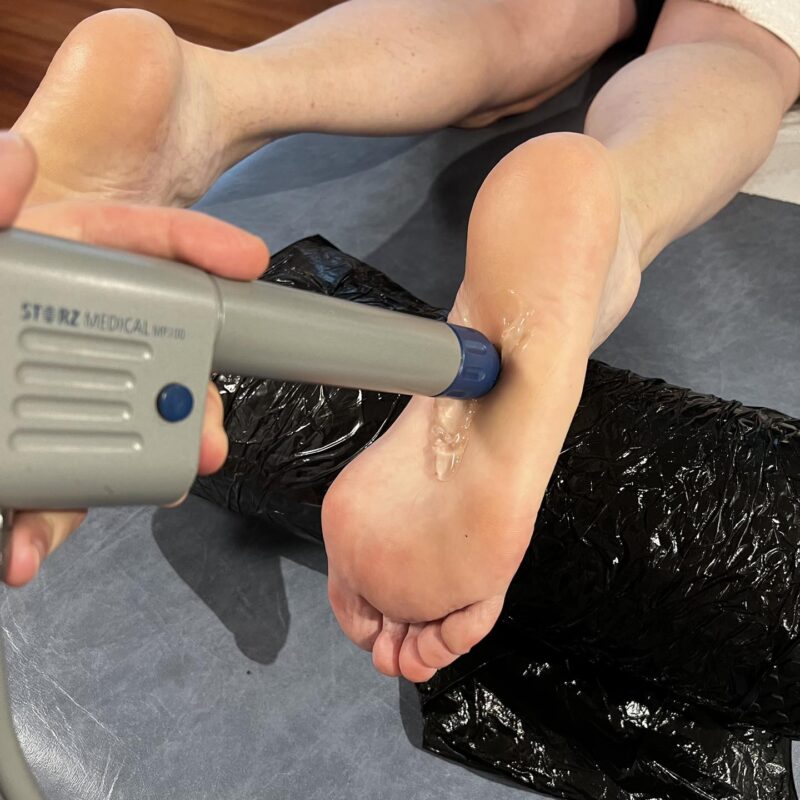Acupuncture: A Powerful Therapy for Phobias
Phobias are a type of anxiety condition distinguished by a strong and illogical fear of particular items, circumstances, or activities. Some common examples of phobias are acrophobia (fear of heights), arachnophobia (fear of spiders), aviophobia (fear of flying), and glossophobia (fear of public speaking). These worries can substantially influence daily life and create severe misery.
When faced with the cause of their phobia, individuals may exhibit physiological symptoms such as elevated heart rate, respiratory distress, tremors, and an intense desire to flee. Phobias can emerge at any stage of life and can be activated by traumatic events, acquired behaviours from relatives, or genetic predispositions. Although fear is a typical reaction to unavoidable circumstances, phobias are characterised by an intensified and enduring fear response that is disproportionate to what the actual threat is that the thing or situation is making you afraid of.
These avoidance behaviours can significantly impact an individual's overall well-being. However, it's important to remember that overcoming these challenges and continuing to grow personally and professionally with the right support and strategies is possible.
Main Pointers
- Phobias are intense, irrational fears that can significantly impact a person's daily life and well-being.
- Traditional treatments for phobias, such as exposure therapy and medication, may have limitations and side effects.
- Acupuncture works to treat phobias by balancing the body's energy and addressing the root cause of the fear.
- The science behind acupuncture for phobias involves stimulating specific points in the body to regulate the nervous system and reduce anxiety.
- Case studies have shown success in using acupuncture therapy to treat phobias and improve overall mental health effectively.
 The Limitations of Traditional Treatments for Phobias
The Limitations of Traditional Treatments for Phobias
Psychotherapy: The Most Common Approach
Cognitive-behavioural therapy (CBT) is the most widely used form of psychotherapy for treating phobias. This approach involves identifying and challenging irrational thoughts and beliefs about the feared object or situation and gradually exposing the individual to the source of their fear in a controlled and safe environment.
Limitations of Traditional Treatments
While CBT is effective for many individuals with phobias, it may not work for everyone, and some people may find it difficult to confront their fears in this way. Medication, such as anti-anxiety drugs or beta-blockers, may be prescribed to help manage the symptoms of phobias. However, these medications can provide only temporary relief from anxiety symptoms and do not address the underlying cause of the phobia. Moreover, they may have side effects or potential for dependency.
Seeking Alternative Solutions
Some individuals may not respond well to medication or prefer not to rely on pharmaceutical interventions. As a result, traditional treatments for phobias have limitations in terms of effectiveness for all individuals, potential side effects, and the need for ongoing therapy or medication management. This has led to a growing interest in exploring alternative approaches to treating phobias.
How Acupuncture Works to Treat Phobias
Acupuncture, an ancient Chinese treatment, aims to restore equilibrium and optimise the circulation of qi. Traditional Chinese medicine believes phobias are caused by imbalances in the body's qi or energy. Acupuncture focuses on particular acupuncture points linked to the neurological system, emotions, and stress responses to restore equilibrium and alleviate the symptoms of phobias. This offers a promising solution for individuals in search of relief.
It is thought that acupuncture influences the neurotransmitters involved in anxiety and mood regulation, such as serotonin and dopamine. By activating these neurotransmitters, acupuncture may alleviate fear and anxiety related to phobias. Moreover, acupuncture is thought to exert a tranquil influence on the neurological system, fostering relaxation and diminishing the body's stress reaction, thereby inducing a sense of calm and relaxation in the individual.
Acupuncture is not just about physiological effects; it's a comprehensive approach to treating phobias. Targeting phobias' cognitive and affective aspects enhances individuals' well-being and promotes relaxation. By reducing reactivity to worries and fostering a grounded state, acupuncture treats the mind and body as a unified entity based on the principle of traditional Chinese medicine.
 The Science Behind Acupuncture for Phobias
The Science Behind Acupuncture for Phobias
Although the precise processes of acupuncture are still under investigation, there is an increasing body of research that suggests its efficacy in the treatment of anxiety disorders, including phobias. The amygdala is a brain area that processes negative emotions like fear and anxiety; there is some evidence that acupuncture may affect its activity. Acupuncture may alleviate the heightened fear response shown in persons with phobias by modulating the activity of the amygdala.
In addition, research has shown that acupuncture can affect the secretion of anxiety- and mood-regulating neurotransmitters, including serotonin and gamma-aminobutyric acid (GABA). One of the ways acupuncture can help with anxiety is by stimulating the release of feel-good neurotransmitters. Acupuncture can alter the activity of brain areas linked to emotional processing and the stress response, according to research using fMRI or functional magnetic resonance imaging.
These findings offer empirical evidence endorsing the utilisation of acupuncture as a therapeutic intervention for phobias and other anxiety disorders. In summary, although further research is required to comprehend the mechanisms of acupuncture for phobias comprehensively, the current evidence indicates that acupuncture can exert a beneficial influence on the physiological and psychological aspects that contribute to these illnesses.
Case Studies: Success Stories of Acupuncture Therapy for Phobias
Acupuncture helps treat phobias, as evidenced by various case studies and anecdotal testimonies. An example of such a scenario entailed a woman with an intense phobia of flying, rendering her incapable of utilising air travel for two decades. Following multiple acupuncture sessions that specifically targeted anxiety and stress-related points, she expressed a notable reduction in anxiety and an increased sense of relaxation with the prospect of flying.
After undergoing a sequence of acupuncture sessions, she was able to board a plane without suffering from severe anxiety. A separate case study examined an individual who had an incapacitating phobia of speaking in public, which has impeded his professional advancement. By undergoing consistent acupuncture treatments aimed at inducing calm and alleviating performance anxiety, he managed to conquer his fear and deliver a triumphant presentation at his workplace.
After receiving acupuncture therapy, he saw an increase in confidence and emotional regulation during public speaking engagements. These success stories exemplify the efficacy of acupuncture in treating phobias. Although outcomes may differ for each person, acupuncture therapy has effectively alleviated many individuals' concerns.
Finding an Acupuncturist for Phobias: What to Look For
Initial Consultation and Treatment Approach
During your initial consultation, discuss your specific phobia and treatment goals with the acupuncturist to ensure they have experience addressing similar concerns. Ask about their approach to treating phobias and their success rate with previous clients. A skilled acupuncturist will take the time to understand your individual needs and develop a personalized treatment plan tailored to your unique symptoms and concerns.
Building Trust and Rapport
Feeling comfortable and at ease with your acupuncturist is essential, as trust and rapport are vital components of the therapeutic relationship. Consider scheduling a brief meeting or phone call before committing to treatment to ensure you feel confident in their abilities and approach.
A Personalized Treatment Plan
A qualified acupuncturist will work with you to develop a personalized treatment plan that addresses your specific phobia and concerns. This plan will be tailored to your unique symptoms and needs, ensuring you receive the most effective treatment possible.
 Integrating Acupuncture with Other Therapies for Phobias
Integrating Acupuncture with Other Therapies for Phobias
Acupuncture can be efficacious as a solitary treatment for phobias, but it can also be combined with other therapies to augment its advantages. An instance of this would be the integration of acupuncture with cognitive-behavioural therapy (CBT), which offers a comprehensive method for addressing both the physiological and psychological components of phobias. Acupuncture can alleviate anxiety symptoms and facilitate relaxation, facilitating individuals' participation in exposure therapy as a component of cognitive-behavioural therapy (CBT).
In addition, integrating mindfulness techniques such as meditation or yoga with acupuncture helps enhance emotional control and decrease stress. These complementary therapies can work together to enhance general well-being and resilience in the management of phobias. In addition, adopting lifestyle changes such as consistent physical activity, nutritious eating habits, and sufficient sleep can enhance general mental well-being and potentially enhance the benefits of acupuncture therapy.
By adopting a comprehensive approach to phobia management, individuals can effectively address several aspects of their well-being and improve their overall treatment results. To summarise, phobias are a prevalent type of anxiety condition that can significantly affect an individual's overall well-being. Although conventional treatments for phobias have certain limitations in terms of their efficiency and potential adverse reactions, acupuncture provides a comprehensive approach that targets both the physiological and psychological elements of these illnesses.
Acupuncture has demonstrated potential as a viable therapy for phobias by regulating neurotransmitters, modulating brain activity, and inducing relaxation. To effectively address anxiety disorders, individuals should actively search for a proficient acupuncturist who specialises in treating such conditions. Additionally, they should contemplate integrating different therapeutic approaches to enhance their chances of conquering their worries and regaining control over their life.
FAQs
What is acupuncture therapy?
Acupuncture therapy is a traditional Chinese medicine practice that involves inserting thin needles into specific points on the body to stimulate energy flow and promote healing.
What are phobias?
Phobias are intense and irrational fears of specific objects or situations. Common phobias include fear of heights, spiders, flying, and public speaking.
How can acupuncture therapy help with phobias?
Acupuncture therapy can help with phobias by promoting relaxation, reducing anxiety, and restoring balance to the body's energy flow. It can also help address underlying imbalances that may contribute to the phobia.
Is acupuncture therapy for phobias effective?
While research on acupuncture therapy specifically for phobias is limited, some studies have shown promising results in reducing anxiety and fear-related symptoms. However, more research is needed to fully understand its effectiveness in treating phobias.
Are there any risks or side effects associated with acupuncture therapy for phobias?
Acupuncture is generally considered safe when performed by a trained and licensed practitioner. However, some people may experience minor side effects such as soreness, bruising, or bleeding at the needle insertion sites. It's important to seek treatment from a qualified practitioner to minimize risks.
Brought To You By:
References:
- Arachnophobia (Fear of Spiders): Overview & Treatment. https://my.clevelandclinic.org/health/diseases/21852-arachnophobia-fear-of-spiders?
- Beyond Digestion: How Probiotics Can Improve Mental Health and Mood – ProbioticsEverything. https://probioticseverything.com/beyond-digestion-how-probiotics-can-improve-mental-health-and-mood/


























40 Comments
This exploration of phobias and their physiological effects brings to mind the often-overlooked intersection between mental and physical health. I’ve always found it fascinating how the body can react so intensely to perceptions of fear, sometimes leading to responses that seem disproportionate to the actual threat.
You brought up a really interesting point about the connection between mental and physical health. It’s wild how our bodies can react to fear in such dramatic ways—even when there’s no real danger present. I’ve often wondered how deeply our mind influences our physical state. For example, think about the way someone might break into a sweat or feel their heart racing when they see a spider, even if it’s just a harmless little thing.
“Check this out—it’s pretty cool and might just spark your interest!”
https://mcrtherapies.co.uk/fb
It really is fascinating how our minds can trigger such intense physical responses. I think it highlights just how interconnected our mental and physical health really are. Your example of a fear response to something as small as a spider illustrates this beautifully. It’s like our brains are wired to respond to perceived threats, even if they’re not actually harmful.
You raise a great point about the deep connection between our mental and physical responses. It’s intriguing how our minds can amplify a harmless creature like a spider into something menacing, right? This conditioning often stems from evolutionary survival mechanisms. Our brains prioritize quick reactions to potential dangers, a remnant of times when our ancestors faced real threats.
“Discover what you’ve been missing – click here!”
https://mcrtherapies.co.uk/yt
You make an insightful observation about our mental and physical connections. It’s fascinating how something like a spider can evoke such intense responses. I think it’s a testament to how deeply wired our survival instincts are; even today, we encounter these conditioned fears that seem out of place in our relatively safe environments.
It’s wild, right? The way our brains still react to things that we don’t really need to panic about. That primal fear is so deeply embedded in us, shaped by generations of survival. Even in a safe and cozy living room, the sight of a spider can provoke an immediate, visceral reaction.
“Absolutely, our instincts run deep! If you’re interested in exploring more about the fascinating links between our psychology and environment, check out this enlightening resource I found.”
https://mcrtherapies.co.uk/ezi
It really is intriguing how those instinctual responses can linger in us, even in a world that feels so much safer than what our ancestors faced. I’ve often thought about how these deep-seated fears play out in different contexts, not just with spiders but in various aspects of our lives—like the way some people react to public speaking or even dogs. It makes you wonder how many of our fears are just echoes of survival mechanisms that were once necessary.
It’s fascinating to think about how our minds can turn something as small as a spider into a source of dread. It really highlights the complexity of our evolutionary psychology. There’s definitely a blend of learned behavior and instinct at play. I’ve noticed it in myself too—sometimes I’ll catch a glimpse of a spider and my heart races before I even realize what it is.
I completely agree with your thoughts on the connection between our mental and physical health. It’s intriguing how our body can react so strongly to something that might not be a real threat, like a spider or even just a stressful thought.
Your observation about how our bodies can react to perceived threats, even when they don’t pose any real danger, opens up a fascinating conversation about the interplay between our mental and physical states. It’s remarkable to think how a mere thought or image, like a spider, can trigger a cascade of physiological responses—like increased heart rate or sweating. This illustrates just how interconnected our mind and body truly are.
You’re spot on about that connection between our minds and bodies. It’s wild how a little spider can send our heart rates skyrocketing, even though it’s completely harmless. I often think about how much our brains are wired to keep us safe, but sometimes that instinct goes into overdrive. It really makes you appreciate how our past experiences shape those reactions, like when someone’s had a bad experience with a certain creature or situation.
“I’m glad you found it fascinating! If you’re interested in exploring more about the mind-body connection, check out this insightful resource that dives deeper into the fascinating science behind our responses.”
https://mcrtherapies.co.uk/fb
You bring up such an interesting point about the connection between our mental and physical health. It’s eye-opening when you start to think about how our brains react to perceived threats—even the tiniest ones. That fear response to a spider might seem a bit over-the-top, but it really highlights what our brains are designed to do: protect us, even if the threat isn’t a real danger in our lives anymore.
Absolutely! It’s incredible how our minds influence our bodies. If you’re interested in exploring more about the mind-body connection, check out this insightful resource!
https://mcrtherapies.co.uk/yt
You’ve tapped into a really fascinating area of discussion. Our brains have this intricate system for processing threats, and it’s often interesting how such a primitive response can still affect us in our daily lives. Take that fear of spiders, for instance. It might seem exaggerated, especially when we know a little creature poses no real risk to our safety, but our brains are wired to react strongly to potential danger.
Thanks for your thoughtful comment! If you’re curious to delve deeper into the fascinating dynamics of the mind-body connection, I highly recommend checking out this resource. It offers some great insights!
https://mcrtherapies.co.uk/ig
It’s interesting to think about how those fear responses develop. Our ancestors definitely needed that alertness to survive in the wild, but now we’re often facing fears that aren’t life-or-death. Like spiders—sometimes I catch myself tensing up when I see one, even though I know it’s harmless. It makes me wonder how much of that reaction is learned versus instinctual.
“I completely agree! If you’re interested in exploring more about the mind-body connection and how our perceptions shape our experiences, check out this insightful resource.”
https://mcrtherapies.co.uk/yt
It’s fascinating how deeply phobias can impact our lives, often leading us to avoid situations that could be enriching or beneficial. I remember struggling with glossophobia during presentations in school, where the mere thought of speaking in front of others would send my heart racing. It wasn’t until I explored various therapies, including acupuncture, that I began to see improvements. The calming effects of acupuncture not only helped with my anxiety but also offered a holistic approach to addressing the root of my fear.
It’s interesting how phobias like glossophobia can shape our experiences, isn’t it? I can relate to the intense anxiety that comes with public speaking. I remember dreading group projects where I’d have to present my ideas, often over-preparing just to feel a little more secure. Exploring different therapies for something like anxiety is such a brave step, and I think it’s great that you found acupuncture helpful. It’s amazing how holistic approaches can address not just the symptoms but also the underlying issues.
You’re touching on a crucial aspect of how phobias like glossophobia can really influence our lives. I can relate to how those group projects can feel more like a minefield than a collaborative effort. Preparing meticulously seems like a smart strategy, yet it can also lead to more stress instead of easing the anxiety.
You’ve brought up some really important points about the grip that glossophobia can have on our lives. The anxiety that comes with public speaking is something a lot of people can relate to, and it’s interesting how it can affect our choices, like avoiding certain situations or feeling the need to prepare excessively. Did you find that the over-preparing ever helped you feel more at ease during those presentations, or did it sometimes add to the pressure?
“Absolutely, it’s fascinating how our experiences can shape us. If you’re interested in exploring more holistic approaches to managing anxiety, you might find this resource helpful!”
https://mcrtherapies.co.uk/ig
You raise a great point about the impact of over-preparing on public speaking anxiety. In my own experience, there were times when extensive preparation did help me feel more grounded and confident. Knowing that I had rehearsed every element of my presentation offered a sense of control that was comforting.
It’s really interesting how phobias can shape our choices and experiences, isn’t it? Glossophobia, in particular, is so prevalent; many people struggle with it in various settings. I had my own experience with anxiety during presentations too, and I found that understanding the fear really helped me confront it. For me, it was less about finding a single solution like acupuncture, though I can see how the holistic approach would be beneficial.
I can relate to your experience with phobias; recently, I found some great insights that explore how holistic therapies like acupuncture can really help manage anxiety and tackle fears in a meaningful way.
‘Homepage’
https://mcrtherapies.co.uk/.
It’s great to hear about your experiences with glossophobia and how you navigated those feelings. Understanding anxiety can really be a game-changer, right? It’s amazing how simply acknowledging what we’re feeling can make it feel less daunting.
It’s fascinating how phobias can have such an overwhelming impact on our lives, often dictating what we can or cannot do. Your exploration of acupuncture as a therapeutic option piques my interest because it highlights the importance of holistic approaches to mental health. I’ve had friends who struggled with specific phobias, and traditional therapies often felt insufficient or too rigid for their unique experiences.
It’s always enlightening to hear about personal experiences with phobias, especially how they influence the day-to-day lives of those who face them. You bring up a crucial point about the limitations of traditional therapies; they can often feel one-size-fits-all, leaving many people without the understanding and support they truly need. The uniqueness of each person’s phobia deserves a similarly individualized approach to treatment.
“I’m glad you found the exploration of acupuncture intriguing! If you’re curious to learn more about holistic approaches to addressing phobias, check out this insightful resource.”
https://mcrtherapies.co.uk/yt
It’s fascinating how deeply phobias can affect everyday life, and I appreciate your exploration of acupuncture as a potential therapy. I’ve heard interesting stories about individuals who have found relief from their phobias through holistic approaches. For example, a friend of mine struggled with aviophobia and found that combining acupuncture with mindfulness practices made a significant difference for him.
It’s wild how something like a fear of flying can turn a simple trip to Vegas into a high-stakes thriller. I bet your friend’s experience with aviophobia and those calming needles is something many can relate to. It’s like finding the ultimate combo in a video game—acupuncture buffing up the mind while mindfulness keeps the panic monsters at bay.
“It’s great to hear how holistic approaches, like acupuncture and mindfulness, can really make a difference—if you’re interested in learning more about how these therapies can help with phobias, check out this resource!”
https://mcrtherapies.co.uk/ezi
This is such an interesting exploration of phobias and their impact on daily life. I’ve encountered some of these fears myself, particularly aviophobia, which made traveling a stressful experience for years. It’s intriguing to consider how our responses can be so disproportionate to the actual situation.
This post really resonates with me, as I’ve experienced the impact of phobias firsthand. For years, I struggled with claustrophobia, which often kept me from enjoying activities with friends or even using public transportation. I wish I had known about acupuncture sooner—it seems like such a holistic approach to addressing the underlying anxiety rather than just managing the symptoms.
Ah, phobias—the perfect excuse to avoid family reunions or that one friend who insists on dragging you to karaoke night! I’ve always thought it’s fascinating how our brains can turn mundane things, like a spider or a slightly tall building, into life-or-death scenarios. It’s like having a personal horror movie playing in our heads!
This discussion on phobias and their impact is incredibly important, as so many people struggle with these issues in silence. I can personally relate to the experience of phobias, having dealt with a severe case of arachnophobia. There are moments when I found myself paralyzed by fear, simply because of a spider’s presence—an entirely irrational response that left me feeling frustrated and isolated.
I can totally relate to that feeling of being overwhelmed by a phobia, especially when it’s something that seems so trivial to others. Arachnophobia can be particularly isolating since spiders are such common creatures, yet the fear can feel so unique and personal. It’s interesting how our brains can create these intense responses to things that don’t pose a real threat but trigger such a primal reaction.
I can completely relate to how isolating phobias can feel, especially ones that seem so trivial to others. It’s fascinating, yet a bit unsettling, how our brains can trigger these intense reactions. I’ve always found it curious that even with something like arachnophobia, where the threat is minimal for most people, the fear can be overwhelming. It’s like each of us has our own personal landscape of fears, shaped by experiences and psychology.
I totally get that overwhelming feeling—it’s fascinating how our minds react to different challenges. Speaking of unique experiences, I recently came across some insights on using acupuncture to tackle restless leg syndrome that might resonate with you, especially if you’re looking for alternative approaches to common issues.
‘Acupuncture for Restless Leg Syndrome: Your Essential Guide’
https://mcrtherapies.co.uk/acupuncture-for-restless-leg-syndrome-your-essential-guide/.
I really appreciate how you’ve highlighted the complexity of phobias in this post. It’s interesting to consider not just the immediate fear response but also the underlying factors that contribute to phobias—like traumatic experiences or inherited traits. I’ve encountered a few people in my life who struggle with phobias, and it’s always struck me how deeply they can affect not just the individual but also their relationships and daily activities.
I found your exploration of phobias and their impact on daily life to be really insightful. It’s interesting how pervasive these fears can be and how they can stem from a mix of personal experiences and even family influences. I often wonder how much of our fears are shaped by the environment we’re raised in versus our individual experiences. For example, I’ve noticed in my own life that my fear of public speaking (glossophobia) seemed to peak after some embarrassing moments in school, which made me extremely self-conscious. It’s fascinating—and a bit unsettling—to think about how a single event can have such long-lasting effects.
It’s really interesting to hear your perspective on glossophobia and how those early school experiences shaped your feelings about public speaking. It’s true—these moments often stick with us, creating a narrative around our fears. The power of a single event can’t be underestimated. For many, something as small as a comment from a peer or a slip-up during a presentation can magnify insecurities, turning them into significant barriers that affect confidence for years.
I’m glad you found the exploration insightful! It really is intriguing how our environments shape our fears. If you’re interested in diving deeper into understanding phobias and practical strategies for overcoming them, check out this resource that offers some great tips and insights.
https://mcrtherapies.co.uk/yt
Reading your post on phobias and their impact on daily life, I couldn’t help but reflect on how pervasive and often misunderstood these conditions are. As someone who has struggled with a mild form of glossophobia, I can relate deeply to the idea of facing situations that seem entirely out of proportion to the actual threat. Standing in front of a group, my heart races, my palms sweat, and suddenly the room feels like it’s closing in. It’s fascinating yet disheartening how such an irrational fear can trump rational thought.
I can really relate to your experience with glossophobia. It’s intriguing how a situation that should ideally be straightforward—like speaking in front of others—can trigger such intense physiological reactions. It’s a stark reminder of how our minds can sometimes betray us, amplifying anxieties to a point where they feel insurmountable.
Your exploration of phobias and their profound impact on daily life resonates deeply with me. I’ve struggled with a severe fear of public speaking for years, which you mentioned as glossophobia. The physiological symptoms you described—like the racing heart and trembling—are all too familiar.
Your exploration of phobias highlights a crucial aspect of mental health that often goes underappreciated—how deeply they can affect daily functioning. As you mentioned, the physiological symptoms can be quite debilitating, and I can relate to this on a personal level. I have a friend who experiences severe glossophobia, making even everyday conversations a source of major stress for her.
I really appreciate how you’ve outlined the complexities of phobias. It’s fascinating (and a bit unsettling) to think about how deeply rooted these fears can be, often stemming from traumatic experiences or learned behaviors. I’ve dealt with my own phobia—it’s a bit embarrassing, but I have a really intense fear of public speaking (glossophobia). Just the thought of it sends my heart racing.
This post sheds light on a topic that is often brushed aside in casual conversations about mental health. Phobias can truly disrupt a person’s life, and the physiological responses you describe resonate deeply with what many might experience. As someone who has grappled with fear closely related to public speaking—glossophobia, as you mentioned—I can personally attest to the overwhelming sensations of anxiety that can engulf someone when faced with a phobia-triggering scenario.